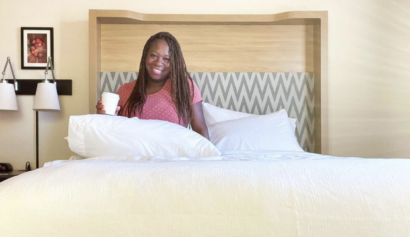Sleepy school children make crabby classmates, while students who get plenty of sleep are better behaved, according to a new study published this week in the journal Pediatrics.
“Extending sleep opens the door to an effective, feasible way to improve children’s health and performance,” says study author Reut Gruber, director of the Attention Behavior and Sleep Lab at the Douglas Research Center in Quebec, Canada.
The study
Gruber and his colleagues wanted to find out if the behavior of elementary school children was affected by how much sleep they got. The researchers, with the permission of parents, enrolled 34 students ages 7 to 11 in the study. These were healthy kids who didn’t have sleep problems or behavior or academic issues.
During one week of school, half the students were put to bed earlier than normal, averaging about 27 minutes more sleep a night. The other half stayed up later than their routine bedtime, losing about 54 minutes of shut-eye each evening.
The results
Teachers – who didn’t know the sleep status of the students – reported significant differences in how the children behaved and coped with everyday challenges. Students who were sleep-deprived not only seemed overly tired, but were more impulsive and irritable than their well-rested classmates. They were quick to cry, lose their tempers or get frustrated.
The children who got plenty of sleep had a better handle on their emotions and were more alert in class.
Sleep experts say these results make sense and provide more evidence about the importance of sleep.
“We know that sleep deprivation can affect memory, creativity, verbal creativity and even things like judgment and motivation and being (engaged) in the classroom,” explains Dr. Judith Owens, director of sleep medicine at Children’s National Medical Center in Washington. “When you’re sleepy, (being engaged) isn’t going to happen.”
And when children have trouble coping with day-to-day situations, Owens adds, this can affect a child’s relationship with teachers, as well as their success in school, social skills and the ability to get along with peers.
Tips for parents
So how do you know if your child is getting enough sleep? Children in elementary school generally need between 10 to 11 hours each evening, but no two children are alike. Parents should look for clues, experts say.
“Kids in this age range should not be sleepy during the day,” Owens says. “If the are falling asleep…
Read more: Leslie Wade, CNN

